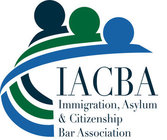
Internal relocation is governed by EU law. Article 8 of the Qualification Directive states that Member States may rely on it. Is it discretionary? Transposing Article 8 to allow reliance on internal protection is discretionary.
The key issue with internal relocation—assuming that the proposed place is safe — is reasonableness. David Leonard BL examines a pending case case before the CJEU, and other jurisprudence on the matter.
Background
A pending Italian reference Case C-254/21 DG v. Ministero dell’Interno is interesting. DG involves an applicant from Afghanistan who was refused international protection in Germany based on internal relocation. The person then went to Italy who proposed to invoke the Dublin III Regulation to transfer the person to Germany.
A key question arose: Should the Italian court dealing with the Dublin appeal assess whether there is a risk of indirect refoulement to Afghanistan because of the application by Germany of internal relocation, which couldn’t apply in Italy?
Irish law
Internal relocation hasn’t been considered by the Court of Appeal or the Supreme Court. The language used by the Cooke J. in A.S.O. v. Refugee Appeals Tribunal [2009] IEHC 607 suggests (obiter) that internal relocation is optional. In K.D. (Nigeria) v Refugee Appeals Tribunal [2013] IEHC 481, [2013] 1 I.R. 448, Clarke J. stated that it is optional. At least some IPAT members take the view that reliance on internal relocation is discretionary.
A.S.O. suggests that internal relocation shouldn’t be relied on lightly. In K.D. (Nigeria), Clarke J. considered previous cases and distilled applicable principles. One principle was that the threshold for refusing international protection based on internal relocation is high. The applicant would be recognised as a refugee but for relocation. The inquiry must be commensurately careful. This principle has been seized on in subsequent Irish cases.
English case law
Although the English courts haven’t had to consider whether the concept is optional, if it is optional that goes against clear reasoning in cases such as Januzi v. Secretary of State for the Home Department [2006] UKHL 5, [2006] 2 AC 426, the leading House of Lords authority on internal relocation. In those cases, having no reasonable internal-relocation option is seen as an inherent part of the refugee definition. If there is a safe place in the country of origin where the applicant could reasonably live, he or she cannot be said to be outside that country because of a risk of persecution. There is real logic to that.
External challenge: Conditions in the country of refuge

In Januzi, the primary issue was whether, in judging reasonableness, you should take into account any disparity between the civil, political, and socioeconomic human rights the person would enjoy in the place of relocation in the country of origin compared with those in the place of refuge, i.e., the UK. The House of Lords held that reasonableness was to be assessed by considering whether the person could live a relatively normal life in the place of relocation, judged by the standards generally prevailing in his country of nationality rather than the standards generally prevailing in the place of asylum.
It was emphasised that reasonable means not unduly harsh; the rigorous nature of the test was stressed.
That reasonable means not unduly harsh has been accepted in the Irish case law too, but not with the same level of emphasis.
External challenge: What is “due” to the applicant as a criminal
The Supreme Court’s decision in SC (Jamaica) v. Home Secretary [2022] UKSC 15, [2022] 1 WLR 3190 involved whether a Jamaican criminal could relocate to an unidentified rural area of Jamaica.
The Supreme Court allowed SC’s appeal, holding that the Court of Appeal erred in law by importing such a value judgment of what is “due” to the person as a criminal into the question as to whether internal relocation was reasonable or unduly harsh.
Internal relocation and Articles 2 & 3 ECHR
There’s no breach of Articles 2 and 3 ECHR if internal relocation is available in a part of the country of origin where there’s no real risk of breach of those rights. The test was considered in D.N.M. v. Sweden, no. 28379/11, 27 June 2013. Again—assuming the place is safe—it comes down to reasonableness.
Conclusion: Everything relevant—but only everything relevant—should be considered
Leaving aside arguments that the applicant would, in fact, be in danger, in the proposed safe area, the key issue is reasonableness. As said in AH (Sudan), the test is one of great generality, excluding from consideration very little other than the standard of rights protection an applicant would enjoy in the country of refuge. In light of SC (Jamaica), we can now exclude any raising of the threshold because the applicant is “undeserving”. Future case law may identify other irrelevant factors or “external challenges”. But the test will remain one of great generality.
It can be seen from the case law of England, Strasbourg, and this jurisdiction that the same concept of reasonableness can be applied with differing emphasis on certain relevant aspects to be borne in mind. This is to be expected.
Just as elements of the same test can be stressed with varying levels of emphasis at the macro level across different jurisdictions, there could lawfully be variations in the approach of individual decision makers.
Reasonableness allows for judgment or discretion on the part of decision makers. So long as the test is applied lawfully, the result is a matter for the decision maker and not the Courts in judicial review. This may mean that in many finely balanced cases there is no objectively correct decision. Perhaps more accurately, in many cases a lawful decision could go either way. The decision maker has the freedom to be — and is trusted to be — reasonable.
Discover our Specialist Bars

The Immigration, Asylum and Citizenship Bar Association (IACBA) is an association of barristers who are members of The Bar of Ireland specialising in immigration (including EU free movement of persons), asylum and citizenship law, in addition to related areas such as employment permits, family reunification and trafficking in human persons.
Their aim is to provide relevant continuing professional development seminars, information and public events to better inform barristers and the wider public of these areas of law.
The views expressed above are the author’s own and do not reflect the views of The Bar of Ireland.